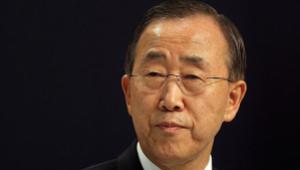The recently agreed Sustainable Development Goals are, depending on your view, either an ambitious pitch to broaden the ownership and impact of global development, or a great fiction. Whichever of these sounds most appropriate, it cannot be denied that the process at this early stage has been long on the ‘what’ and short on the ‘how’. But the how is the most profound question of all.
I have spent the last week working with the United Nations Development Programme’s Global Centre for Public Service Excellence (UNDP GCPSE) in Singapore. Their mandate is to act as a convening hub and global resource for governments who want to improve the integrity, motivation and effectiveness of their public services. A big and sometimes impossible job, but in a stroke of managerial foresight they have asked Collaborate to help them with part of this process.
All of which gives me the opportunity to reflect on our own work: does it translate across country boundaries? Is it relevant in parts of the world with different operating systems and cultural norms? Do the routes to practice we identify in Collaboration Readiness: why it matters, how to build it and where to start make sense to others?
You might expect me to say this, but I rather think the answer is yes. There is no doubt that working across sector lines to improve public service outcomes is a goal shared by many. But the contextual differences are key; and where terminology like co-production and innovation can sometimes feel weightless (despite their importance), the notion of collaborating for outcomes has a resonance and a simplicity that makes sense.
This, however, makes it all the more important to do it justice. In our report Sarah Billiald and I argue that there is no transformation without collaboration, and no collaboration without readiness. What do we mean?
Our own research with Ipsos MORI tells us that only 13% of UK citizens feel a stake in the way the public services they experienced are shaped. This is consistent – there has been no change since early 2014. So it is going to take something very different to live up to the potential of collaborative citizens shaping modernised services. Our report argues for three starting principles:
1. FLIP THE STARTING POINT: put outcomes over provider, demand ahead of supply, and values over business model.
2. SHIFT THE NARRATIVE: re-cast services to the public as an engine of growth, productivity and future human capital.
3. BUILD THE PRACTICE: take collaboration seriously and prioritise building shared space and delivery readiness.
Let’s look at an example from the social care sector in Scotland. The context for public service reform north of the English border creates different possibilities for commissioners and providers. Co-terminosity of local government and healthcare governance, a consistent policy push towards prevention and progressive legislation around health and social care integration and self-directed-support (SDS) provide the backdrop. Yet experiments in co-production and collaboration (for example through Public-Social-Partnerships) have struggled to shift cost, volume and scale as the key determinants of social care contracting. Collaborate’s work with the Coalition of Care and Support Providers (also engaging bodies such as Social Work Scotland, COSLA and the Scottish Government) has, in response, offered a ‘shared space’ to broker a more constructive dialogue around which key stakeholders can mobilise. A resultant work programme – called ‘Collaborative Commissioning’ – has been put in place to take this ethos forward into the next phases of reform.
From Scotland back to Singapore the challenge of blending quality engagement and innovation with sustainable delivery is the big one. The Sustainable Development Goals may require, as UNDP Global Centre director Max Everest-Philips has argued, global policymakers to more obviously recognise and value the vital role of public services in supporting social progress. But without building readiness to work in different and more collaborative ways, the risk is that investing in progress is reduced to sunk cost in legacy systems. And there is nothing sustainable about that.













